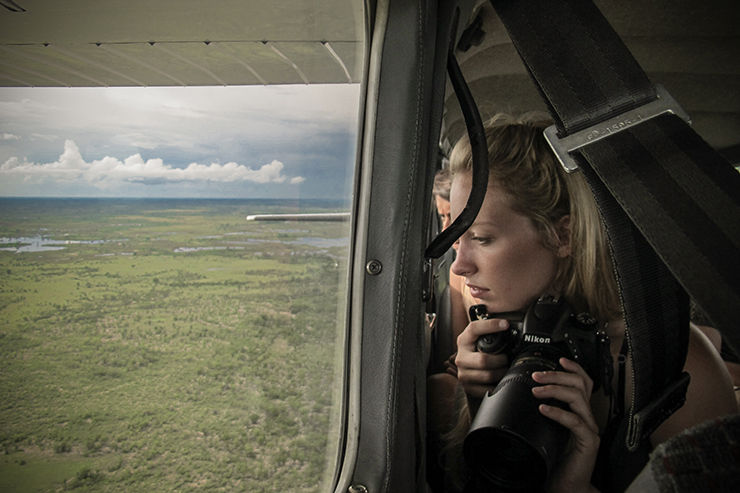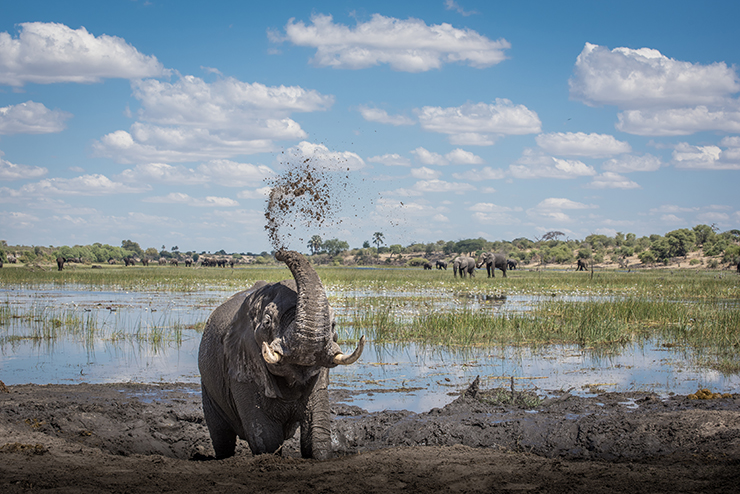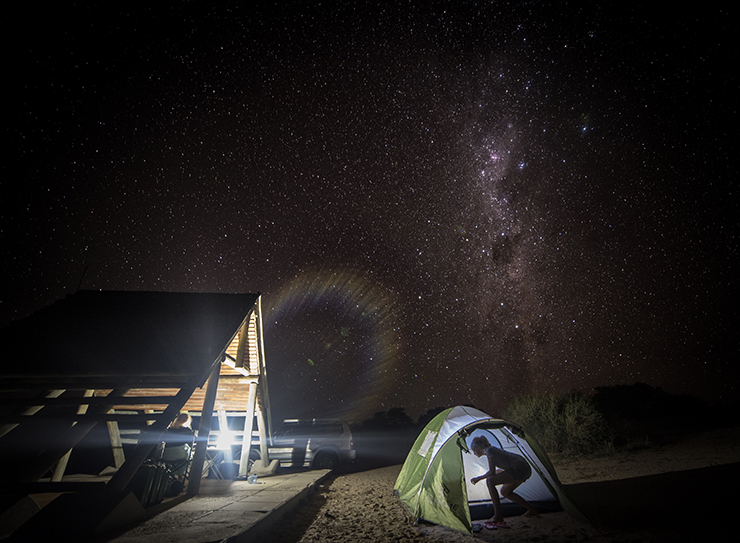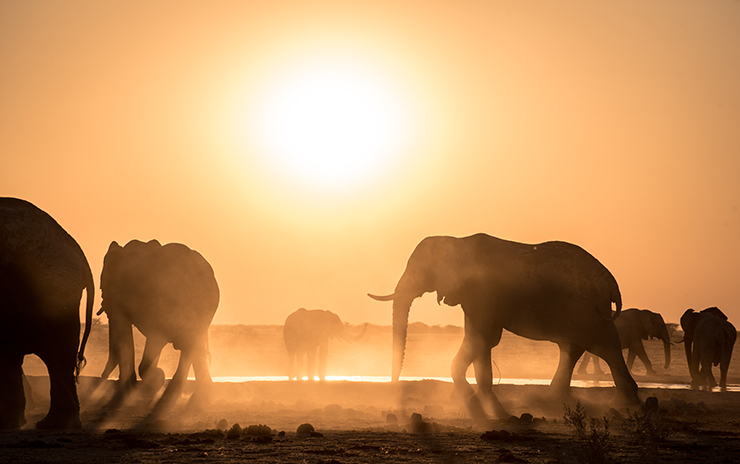By Craghoppers Ambassador, Connie Allen
I am an ethologist – someone who studies the behaviour of animals. I’m mainly based in Botswana at the Makgadikgadi Pans National Park collecting research for my PHD.
The behaviours, relationships and social connections of male elephants are important to understand, especially if we are to use this information for vital conservation work in the future.
The population of elephants have dramatically fallen from a predicted 20 million (prior to European colonization) to 300,000. Threats from poaching for ivory, human wildlife conflict and habitat loss are lowering that figure by approximately 30,000 individuals each year.

Before we can introduce elephants to new areas, it’s important to understand their social behaviours and how the herd works. My PHD specifically looks in to the role of older male elephants, or ‘bulls’ and how they play an important role in keeping a balance and a happy elephant herd together.
Past attempts to release elephants have failed, due to the lack of larger mature bulls in place to keep the order and structure. The younger male elephants became a bigger danger, killing 10% of the parks rhino population, excessively damaging trees and infrastructure and even causing human mortality. Introduction of older male elephants practically stopped the chaos overnight – and the male community was restored to a healthier state.
The Boteti River is an interesting focus point for looking at social interactions, as this location shows us a variety of behaviours. How are they using the river to build new relationships? Do they always walk to the river with the same partner? What is really going on in their world?

As part of my research, l will monitor how the male elephants react to new elephants outside of the group, how they travel as a herd and also how they interact with each other.
Issues such as trophy hunting are diminishing the numbers of older bulls, as poachers believe this is acceptable due to the elephants being “post reproductive”, but this isn’t the case. We need to protect and understand these animals. In fact, I propose older male elephants are more important as ever, as they keep the order and structure of the herd.
Life in the field, and living in a bush camp can be intense and stressful and I am indebted to Craghoppers for their constant enthusiasm for my work as well as their generosity in kitting me out in the field. Botswana is a land of extreme conditions and extreme contrasts, and being well equipped in the field can make a world of difference to your comfort and efficiency at work.

During the year there would be times where I would be exhaustingly trying to collect data battling in the blazing sun in excess of 45 degrees for months on end. Whereas in the winters I could be huddled up in my canvas tent at night resisting sub-zero temperatures. The excellent quality of the Craghoppers clothing always insured I had something appropriate for these extremes.
In the wet season the Craghoppers Nosilife gear kept me protected from swarms of mosquitos, and the fantastic quality GORE-TEX rain jacket worked a treat when half the annual rainfall decided to fall in just one storm when I was out collecting camera traps! I feel honoured to be associated with a brand so dedicated to producing such high quality products for lovers of the outdoors, whilst staying so personable and caring to the customer. My Craghoppers gear has served me well for years of exploration and discovery and I anticipate many more to come!
So join me this month on my journey, to gain an insight in to the world of elephants in Boswana. Get updates of the story via Instagram by following us here.
